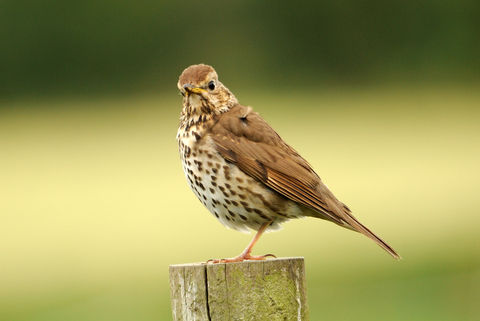The song thrush is a beloved bird species in the UK, known for its beautiful voice and distinctive spotted plumage. However, in recent years, there has been a worrying decline in song thrush populations across the country. In this blog post, we will explore the causes behind this decline and what actions we can take to help protect these iconic birds.

Habitat Loss:
One of the primary reasons for the decline of song thrushes is habitat loss. The destruction of hedgerows, woodlands, and other natural habitats has significantly reduced the available nesting and foraging areas for song thrushes.
Climate Change:
Climate change is also a contributing factor to the decline of song thrush populations. Changes in weather patterns and temperature can impact the availability of food sources, affecting the birds' ability to survive and reproduce.
Predation:
Predation from cats, birds of prey, and other predators is another significant threat to song thrushes. As ground-nesting birds, they are particularly vulnerable to predation, and increasing predator populations can have a significant impact on their survival rates.
What We Can Do:
There are several actions that we can take to help protect song thrush populations. One of the most important is to provide suitable habitats for nesting and foraging. This can include planting hedgerows and trees, creating wildlife-friendly gardens, and avoiding the use of pesticides and other harmful chemicals.
Reducing predator populations can also be effective in supporting song thrush populations. Encouraging responsible pet ownership and keeping domestic cats indoors can help reduce predation rates, as can controlling populations of other predators such as magpies and foxes.
Conclusion:
The decline of song thrush populations in the UK is a cause for concern, but there are steps that we can take to help protect these beautiful and important birds. By creating suitable habitats, reducing predation, and raising awareness of the importance of song thrush conservation, we can work together to ensure that these birds continue to thrive in the UK's landscape.

コメント